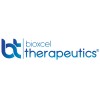
Outcomes Mandate National Integration With Cannabis as Medicine
Chronic PainChronic Pain Syndrome31 moreThis will be a multistate, multicenter clinical study to determine the efficacy and safety of medical cannabis for a wide variety of chronic medical conditions.

NRX101 for Suicidal Treatment Resistant Bipolar Depression
Bipolar DepressionSuicidal Ideation and BehaviorNMDA antagonist drugs have shown to reduce symptoms of depression and suicidal ideation. NeuroRx has developed NRX-101 (fixed dose combination of D-cycloserine and lurasidone) for oral use in the treatment of bipolar depression with suicidal ideation. This study will test the hypothesis that NRX-101 is superior to lurasidone alone (standard of care) in maintaining remission from symptoms of depression (primary endpoint) and suicidal ideation or behavior (declared secondary endpoint) over a six week period of twice-daily oral dosing.

Efficacy and Biomarkers of Response of TBS in Treatment Resistant Depression
Resistant DepressionTreatment1 moreTheta Burst Transcranial Magnetic Stimulation (TBS) in dorsolateral prefrontal cortex (DLPFC) has shown efficacy and safety as an adjuvant strategy for resistant to treatment depression (RTD) in daily sessions during 4-6 weeks (20-30 sessions). Current investigation in TBS aims to design intensive treatment protocols so as to achieve earlier responses and higher rates of efficacy. However, the implementation of TBS in the Public National Health Service requires cost-effective protocols that ensure and facilitate patients adherence to treatment, and whose design is based on clinical and neuroimaging biomarkers of response so as to adequately select candidate patients. The aim of this study is to assess the efficacy and safety of novel bilateral and unilateral intensive and spaced protocols of TBS in outpatients with unipolar and bipolar RTD compared with sham stimulation. Specific objectives: I) Comparison of mood change, response and remission of depressive illness at the end of TBS protocol in the groups and maintenance of its effect at 3 months; II) Characterization of neuroimaging cerebral connectivity networks and cerebral metabolism patterns of patients with RTD related to the effects of bilateral or unilateral TBS; III) Identification of clinical and demographic predictors contributing to response to TBS; IV) Analysis of the interaction between clinical, demographic and neuroimaging predictors so as to determine a RTD profile of patient that can benefit from TBS.

8 Week Multi-site Study of MYDAYIS® for Bipolar Depression
Bipolar DepressionThis protocol is a Phase 2 multi-site study which aims to evaluate the safety and effectiveness of MYDAYIS® as adjunctive therapy for adults with bipolar depression. Results from this study WILL NOT be used to contribute to an approval of MYDAYIS ® for this indication.

Neuromodulation for Enhancement of Emotion Regulation in Bipolar Mood Disorders
Bipolar DisorderThe investigators are conducting this research study to better understand how individuals with bipolar disorder regulate their emotions, and if transcranial magnetic stimulation (TMS) can help improve emotion regulation for individuals with bipolar mood disorders.

Effectiveness RCT of Customized Adherence Enhancement
Bipolar DisorderApproximately one in two individuals with bipolar disorder (BD) are non-adherent with medication, often leading to severe and negative consequences. Unfortunately, there is no widely used evidence-based approach to target poor adherence among individuals with BD. Building upon positive efficacy trial results, the proposed project will test the effectiveness of technology-facilitated Customized Adherence Enhancement (CAE) vs. enhanced treatment as usual (eTAU) using a prospective randomized controlled design in public mental health care settings and preferentially enrolling poorly adherent/high-risk individuals with BD. Deliverables include a curriculum-driven adherence enhancement approach that can be implemented in public healthcare settings and which can improve outcomes for the most vulnerable groups of people with BD.

Post-Hospital Intervention for Veterans With Comorbid Bipolar and Substance Use Disorders
Bipolar DisorderSubstance Use DisordersThis trial aims to evaluate the effectiveness of a novel intervention for Veterans with co-occurring bipolar and substance use disorders following a psychiatric hospitalization. Half of the participants will receive a specialized psychosocial intervention program, while the other half will receive an enhanced safety monitoring program, both provided in addition to their routine care.

A Study of JNJ-55308942 in the Treatment of Bipolar Depression
Bipolar DisorderThe purpose of this study is to evaluate the efficacy of JNJ-55308942 compared to placebo on symptoms of depression in participants with bipolar disorder (BD) in a major depressive episode (MDE) at Week 6.

Adjunctive Bright Light Therapy in Patients With Bipolar Depression and Eveningness
Bipolar DepressionThis is a randomized placebo-controlled trial to examine the efficacy of six-week bright light therapy as adjunctive treatment for patient with bipolar depression and eveningness.

Tachyphylaxis, Tolerance, & Withdrawal Post Treatment With Igalmi for Agitation in Schizophrenia...
Bipolar DisorderSchizophrenia3 moreThis is an in-clinic, single arm, open-label study assessing tachyphylaxis, tolerance, and withdrawal following repeated doses of Igalmi in adult males and females with agitation associated with schizophrenia or bipolar disorder.
